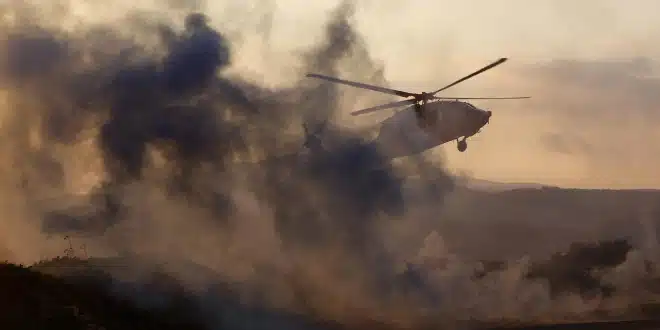Israeli Prime Minister Benjamin Netanyahu has directed military forces to gear up for a potential entry into the densely populated city of Rafah in Gaza. This directive comes amidst plans for a new phase of talks in Cairo on Thursday, aiming for a ceasefire with Hamas.
Netanyahu’s decision followed the rejection of Hamas’s response to a ceasefire proposal, a central topic in recent diplomatic efforts. Despite this, U.S. Secretary of State Antony Blinken, during his visit on Wednesday, expressed optimism about finding common ground for agreement.
The international community is increasingly worried about the plight of the numerous Palestinians taking refuge in Rafah, near the Egyptian border. UN Secretary-General Antonio Guterres has voiced concerns that a military operation in Rafah could drastically worsen the already dire humanitarian situation there.
In a public statement, Netanyahu announced the military’s preparations to act in Rafah, asserting that a decisive victory over Hamas could be achieved in the coming months. He criticized Hamas’s demands as unreasonable, suggesting they could lead to further violence.
Blinken, amidst efforts to mediate a truce, highlighted that although Hamas’s counter-proposal contained unacceptable elements, it still offered a basis for continued negotiations. After meeting Netanyahu, Blinken remained committed to working towards an agreement.
A new series of talks is scheduled to commence on Thursday in Cairo, focusing on de-escalating tensions in Gaza and discussing a possible exchange of prisoners and hostages. Egyptian officials are calling for flexibility from both sides to reach an agreement. Hamas has confirmed its participation in the talks, aiming for a ceasefire, an end to hostilities, and a prisoner exchange deal.
The conflict in Gaza, ignited by a significant attack from Hamas on Israel on October 7, has led to substantial casualties and a humanitarian crisis. Israel’s response has been to target Hamas through airstrikes and a ground offensive, resulting in thousands of deaths, predominantly among women and children, according to Gaza’s health ministry.
The issue of hostages taken by militants during the October 7 attack remains a critical concern in Israel. Netanyahu faces pressure to negotiate their release, despite his stance that military action is necessary to secure their return.
As Israel contemplates extending its military operations to Rafah, the safety and well-being of displaced Palestinian civilians in the city are of great concern. The UN has highlighted the severe living conditions faced by these individuals, underscoring the need for caution in military actions to prioritize civilian safety.
The conflict has also escalated tensions in the region, with retaliatory strikes involving Iran-backed groups and responses from Israel, the United States, and their allies. Recent developments include a U.S. airstrike in Iraq targeting a commander accused of attacking U.S. forces, and Israeli strikes in Lebanon causing civilian casualties.
The ongoing hostilities raise fears of a broader conflict, with experts cautioning against the potential for a significant escalation that could involve major regional powers.


